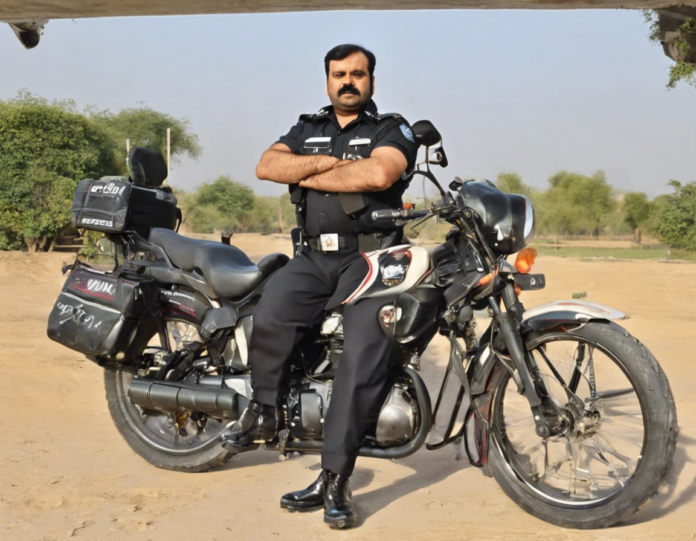Introduction
In the realm of law enforcement, Dedicated Service Professionals (DSPs) play a crucial role in maintaining peace and order within their communities. These individuals exhibit a high level of commitment, courage, and resilience in the face of challenging and often dangerous situations. One such exemplary police officer is DSP Humayun, whose unwavering dedication to upholding justice and serving his community has earned him widespread respect and admiration.
Background and Career
DSP Humayun began his career in law enforcement over two decades ago, starting as a beat constable in a bustling urban district. His passion for serving the public and ensuring the safety of citizens motivated him to excel in his role and seek opportunities for professional growth. Through hard work and determination, he gradually rose through the ranks, taking on increasingly challenging assignments and demonstrating his leadership abilities.
Qualities of a Dedicated Police Officer
-
Integrity: DSP Humayun embodies integrity in all aspects of his work, adhering to high ethical standards and always prioritizing the welfare of the community over personal gain.
-
Courage: Facing unpredictable and often dangerous situations is an inherent part of a police officer’s job. DSP Humayun’s courage and bravery in the line of duty set him apart as a role model for his colleagues.
-
Empathy: Understanding the diverse needs and concerns of the community is essential for effective policing. DSP Humayun’s empathetic approach towards citizens, especially vulnerable populations, has helped foster trust and cooperation.
Challenges Faced by Police Officers
-
Mental and Emotional Strain: The demanding nature of police work can take a toll on officers’ mental and emotional well-being. DSP Humayun, like many of his peers, has had to navigate the stress and trauma associated with the job.
-
Resource Constraints: Limited resources, including manpower, equipment, and logistical support, can hamper the effectiveness of law enforcement agencies. DSP Humayun has had to find innovative solutions to overcome these challenges and deliver results.
Community Engagement and Outreach
DSP Humayun recognizes the importance of building strong relationships with the community to enhance trust and cooperation. He actively participates in outreach programs, public events, and youth initiatives to bridge the gap between law enforcement and the public. By fostering open communication and mutual respect, he has succeeded in creating a safer and more inclusive environment for all.
Career Advancement and Professional Development
As a seasoned police officer, DSP Humayun understands the value of continuous learning and growth. He actively seeks out training opportunities, workshops, and conferences to stay updated on the latest trends and best practices in law enforcement. By investing in his professional development, he ensures that he remains at the forefront of his field and can better serve his community.
Frequently Asked Questions (FAQs)
- What qualifications are required to become a police officer like DSP Humayun?
To become a police officer, individuals typically need to meet certain criteria such as a high school diploma, physical fitness requirements, and passing a background check. Further education and specialized training can enhance one’s prospects for advancement.
- How can police officers cope with the stress and trauma of their job?
Coping mechanisms for stress and trauma vary among individuals, but common strategies include seeking professional counseling, engaging in physical activity, maintaining a strong support network, and practicing mindfulness and relaxation techniques.
- What are some ways in which police officers can build trust with the community?
Building trust with the community requires open communication, transparency, active listening, and demonstrating empathy towards citizens’ concerns. Police officers can also engage in community outreach programs, establish partnerships with local organizations, and participate in public events to foster positive relationships.
- What career opportunities are available for police officers seeking advancement?
Police officers can pursue various career paths within law enforcement, including specialized units such as SWAT teams, K-9 units, detective divisions, and supervisory roles. Advanced degrees, certifications, and leadership training can also open doors to higher-ranking positions within the department.
- How can aspiring police officers prepare for a career in law enforcement?
Aspiring police officers can prepare for a career in law enforcement by maintaining a strong academic record, staying physically fit, participating in volunteer work or internships related to criminal justice, and familiarizing themselves with the principles of policing through relevant coursework or training programs. Additionally, cultivating strong communication skills, problem-solving abilities, and a sense of integrity and professionalism are essential for success in this field.













